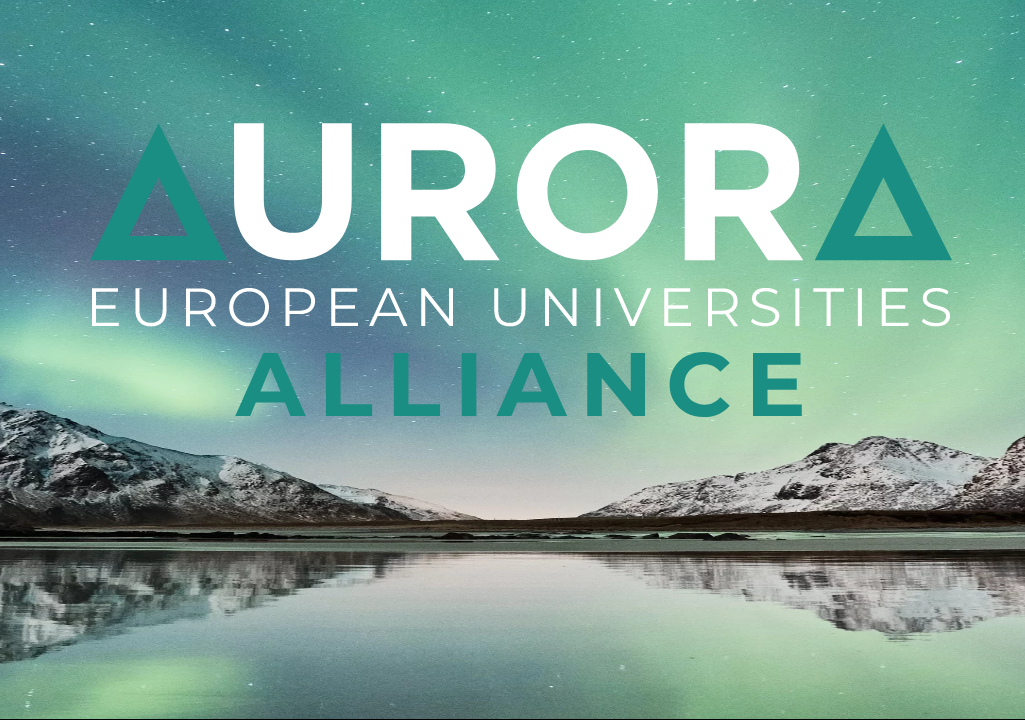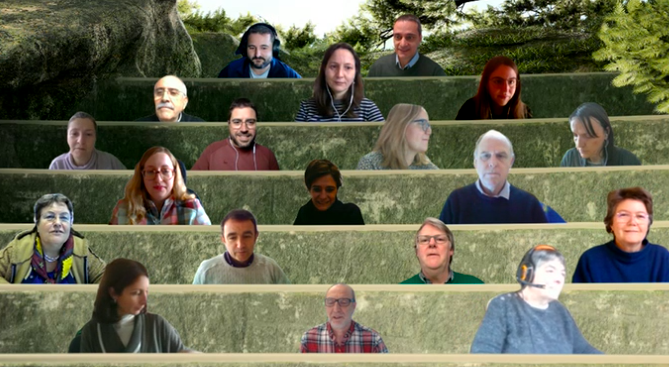20/04/2021
First meeting of all URV staff involved in the Aurora Alliance to share the current state of the project
More than 30 technical, administrative and research members of the URV met on Friday, 19 March, in the first joint meeting of the whole team working on the European project

More than 30 technical, administrative and research members of the URV met on Friday, 19 March, in the first joint meeting of the whole team working on the European project
For the first time since the beginning of the project all of the URV personnel involved in the European Alliance of Aurora Universities met online to discuss the progress that has been made by the participating groups. During the meeting, the creation of the project’s technical office was announced. This office is entrusted with the internal coordination of the project.
The meeting was chaired by the rector of the University, María José Figueras, who gave an overview of the current state of the project and its implications, and the Vice-rector for Internationalisation, John Style, who is the institutional coordinator and responsible for the Aurora technical office. Each of the University’s representatives for the individual work packages presented a short report on the state of each task and the next steps that would be taken.
At the end of the meeting, a SWAF project, the Aurora Alliance RI, was announced. It involves several universities from the Alliance and the first of the future activities for students and academics will take place next Tuesday, 30 March.
A multi-campus university from nine countries
Almost 800 students, researchers and staff from the universities of the Aurora European University Alliance will be able to study and do research at the other institutions thanks to the project funded by the European Commission.
It is envisaged that 800 students, lecturers, researchers, and technical and administrative staff from the universities in the alliance will be able to engage in study and research visits, and exchanges at the member universities, share classes and educational resources through a common platform with a thousand learning units, and even go on virtual mobility programmes. The concern for climate change and for providing the 260,000 students of this multi-campus with a significant international experience will encourage virtual and short-term mobility visits in combination with internationalisation at home.
The long-term objective is to become a transnational university multi-campus that addresses the social and environmental problems that are afflicting the areas where each university is located, and put forward solutions through research, teaching and multi-disciplinary dissemination based on particular problems. For this reason, programmes and disciplines will be combined to respond to four challenges: sustainability and climate change; digital society and global citizenship; health and well being, and culture: diversity and identity.
To this end, a common framework of competencies will be created for all the universities so that the same skills are integrated into the curricula of the degrees and the learning outcomes. This will make it easier to recognise the subjects studied at other universities and it is hoped to reinforce the evidence that learning through services and international work experience can help to develop some skills.
The nine universities that make up the Aurora Alliance have a total of 260,000 students and 31,000 employees: Vrije Universiteit Amsterdam (Holland); Háskóli Íslands (Iceland); Duisburg-Essen University (Germany); Universitat Rovira i Virgili (Spain); University of Innsbruck (Austria); University of Naples Federico II (Italy); Palacký University Olomouc (Czech Republic); Copenhagen Business School (Denmark); University of East Anglia (United Kingdom).

